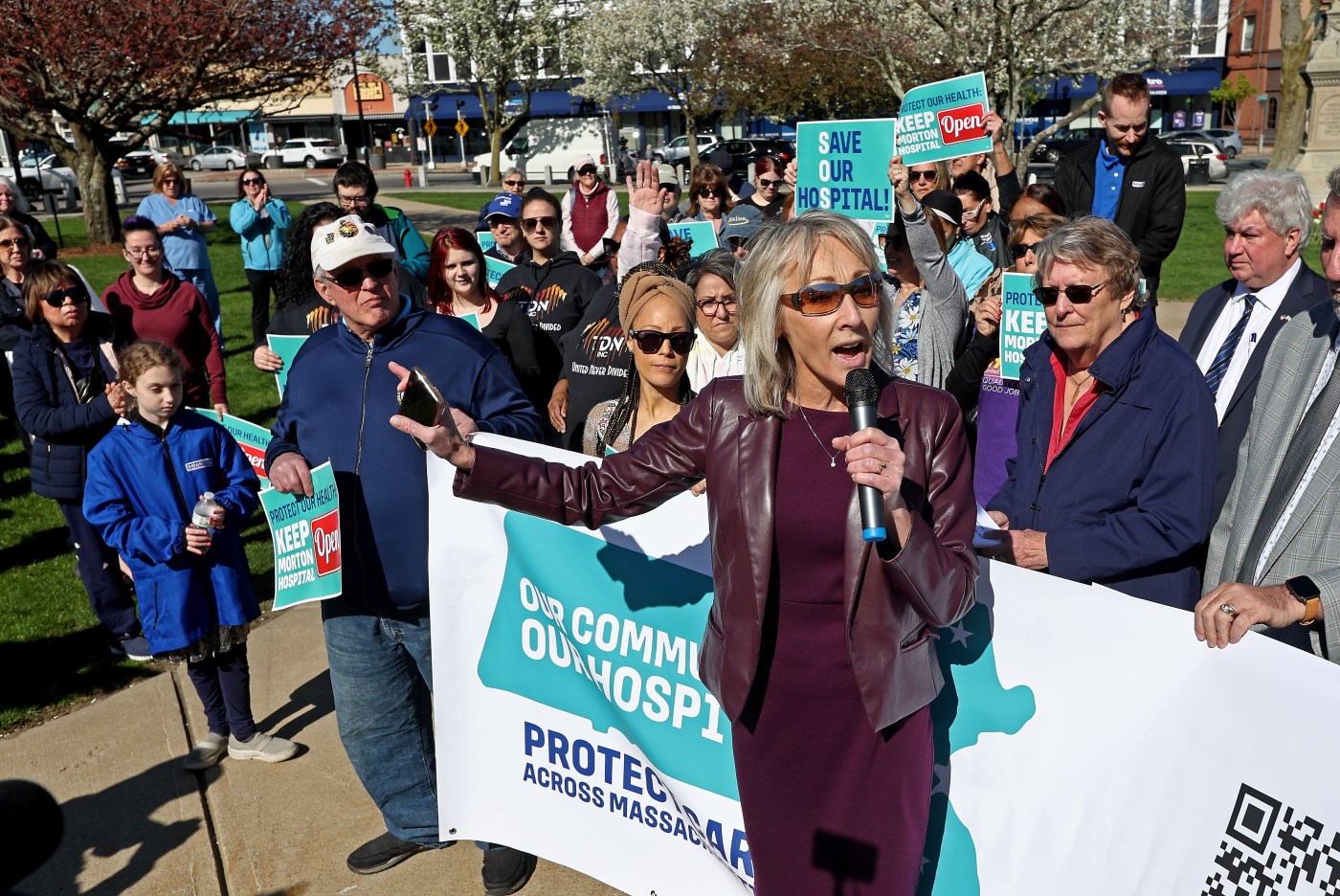
Steward, staring down $9 billion in debts, will auction off 31 hospital properties
All Steward hospitals — including those in the Bay State — will be put for sale at auction this summer, the company’s bankruptcy attorneys told a Texas court, and the goal is to get all 31 of them shifted to new owners without any closing first.
There is real value in the businesses and there are interested buyers, Steward attorney Ray Schrock told U.S. Bankruptcy Judge Chris Lopez, who is overseeing the Chapter 11 proceedings which began Monday in the Southern District of Texas.
While the company doesn’t intend to forget about the patients they serve, Schrock said, Steward hopes to avoid “fire sale” prices as they work to dig themselves out of a $9 billion-deep financial hole.
“We’re presently marketing all of the hospitals,” he said, but stressed that “patient care is paramount to this company.”
“We want to maximize value, we’re here to maximize value, but it’s a hospital system. We’ve got people here who recognize that we need to work with the communities to do the right thing,” Schrock assured the court. “Our goal remains that there are zero hospitals closed on our watch.”
Its lawyers told the court that Steward Healthcare owes $6.6 billion on their future rent obligations, that they’ve stiffed hundreds of vendors on over $1 billion in unpaid invoices, that they owe another $1.2 billion to their lenders, and a quarter million in unpaid wages and benefits to their employees.
Despite this, Schrock started his address to the court by claiming the company and its CEO have been unfairly targeted with public criticism, and that only one side of the story has been shared.
The company got its start in 2010 by buying six “struggling” Massachusetts hospitals in a $895 million deal approved by then Attorney General Martha Coakley as “good for the health-care landscape in general.”
Caritas Christi Health Care CEO Dr. Ralph de la Torre, now the CEO of Steward, told the Herald in 2010 that the sale would benefit “our patients, employees and pensioners and tremendously benefits the communities.”
His company’s bankruptcy attorney said the years following that purchase saw exponential growth and expansion into other states. Schrock seemed to indicate it grew too fast and that attempts to sell properties and turn a profit were stalled by regulations.
Before things went south, the company was making $6 billion in annual revenue, Schrock said.
“It is an impressive company, it provides care to millions of people. Certainly Dr. de la Torre and as well as Steward have been taking a lot of flak, and frankly taking a lot of punches in the press over the last several months,” Schrock said. “You only hear half of the story.”
Steward currently operates eight hospitals in seven Massachusetts cities and towns. Negotiations for a $75 million loan the company has secured as part of the bankruptcy process also include plans to sell those hospitals, along with properties in several other states. The company’s properties outside of Florida are scheduled for auction on June 28, and the remaining nine facilities in Florida will go up for sale two days later, though Schrock told the court those dates may change.
A Department of Public Health spokesperson told the Herald that it’s too soon to say precisely how the bankruptcy proceedings or the sale of those hospitals will affect services in the Bay State, but stressed the situation will be closely monitored by state officials.
“Steward has committed to a responsible transition of its Massachusetts hospitals. The Healey-Driscoll administration continues to collaborate and coordinate with health care leaders across the state to ensure the stability of our health care system, especially in areas where Steward operates. Working across government, with health care leaders, and external advisors, we continue planning for the best way to provide in-patient care, behavioral health care, maternity care, and much needed primary and specialty outpatient services in each region where Steward operates,” the spokesperson said.
Fall River Mayor Paul Coogan said St. Anne’s Hospital, the Steward facility in his city, has already seen interest from prospective buyers. It’s a busy hospital, Coogan said, and he thinks it turns enough of a profit that it isn’t in danger of closing.
If the hospital did close its doors, it would be “devastating to Fall River,” the mayor said.
“The jobs, the tax revenue, the services to our citizens — It’s been there a long, long time. It’s a key piece of the south end of the city and they serve a ton of people,” Coogan said.
Taunton Mayor Shaunna O’Connell said her city’s Morton Hospital is “is integral to the health and well-being of our residents and we will work with all of our stakeholders to ensure it remains open” and that, as the bankruptcy process plays out, the most important take away is that Steward Hospitals are still seeing patients.
“While the announcement that Steward had filed for bankruptcy was not surprising, it is of great concern to the City of Taunton. However, the Chapter 11 Bankruptcy filing by Steward allows for the reorganization and restructuring process to ensure our hospitals remain open to our communities,” she told the Herald in a statement.
Other Steward facilities include St. Elizabeth’s Medical Center and Carney Hospital in Boston, Good Samaritan Medical Center in Brockton, Holyoke Hospitals in Haverhill and Methuen, and Nashoba Valley Medical Center in Ayer. The company’s Norwood Hospital has been closed since 2020 due to flooding, and the company permanently shuttered New England Sinai Hospital on April 2.


